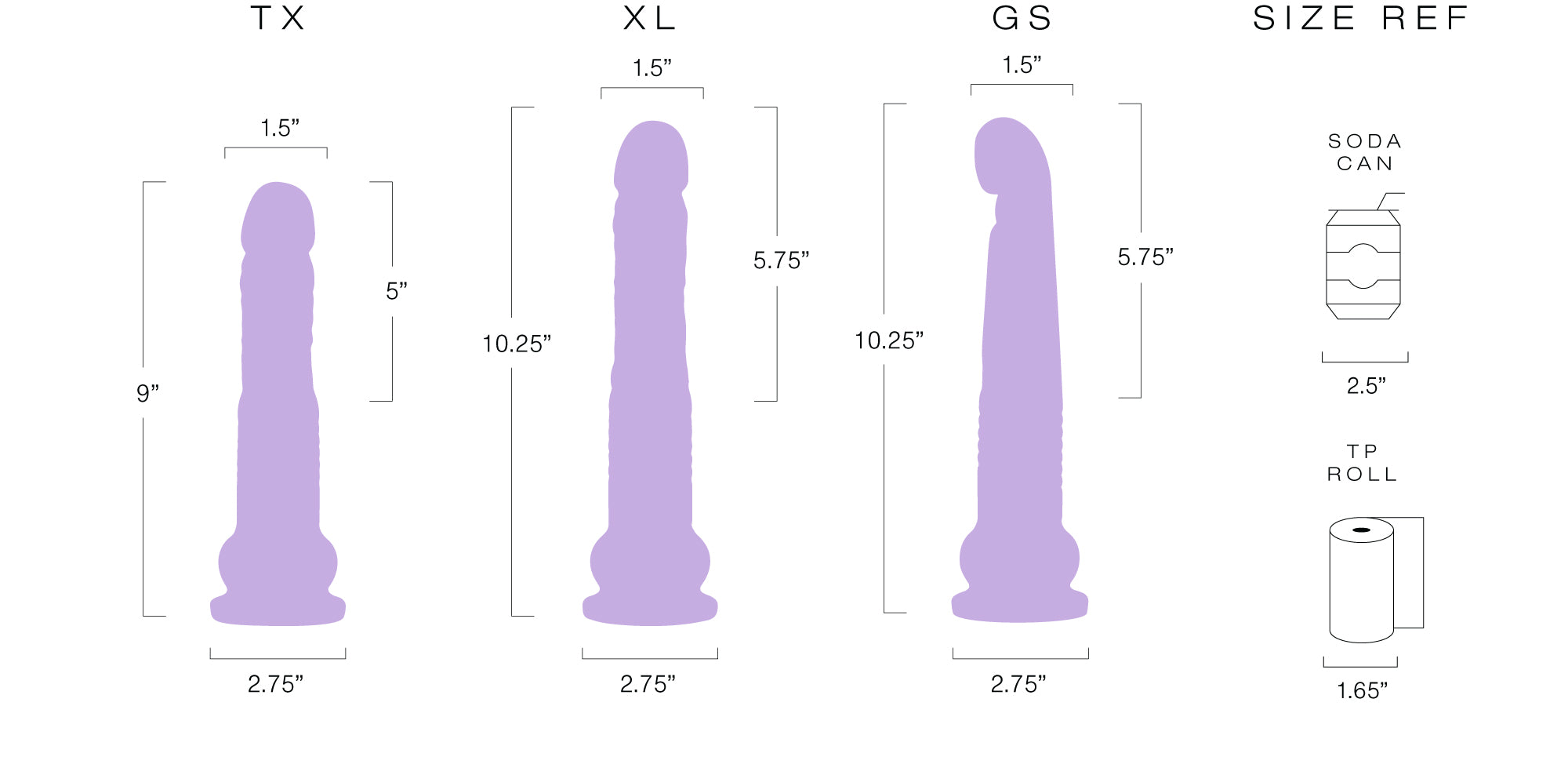Velvet Thruster Sex Expert Guide on Relationships
Velvet Brands ask therapist, mental health, and relationship expert Rachel Wright for guidance on a basic question every person asks themself at one time or another. Psychotherapist Rachel Wright, with a Master's Degree in Clinical Psychology, is recognized as one of the freshest voices on modern relationships and sex, "helping humans scream less and screw more."

Written By Rachel Wright.
- "Make sure you're communicating in a healthy way!"
- "Is that a healthy behavior in a relationship?"
- "You know that's super unhealthy that they do that…"
Have you ever heard of one of these things? I know I have, and loads of my clients have because they wind up bringing it into our sessions together, asking, "is it healthy that my mom does…." or "my partner …. Is that healthy?" This concept of healthy and unhealthy behaviors isn't new, but it's being discussed more now than ever.
But here's the thing, most things aren't binary. As with many things, there is a grey area between healthy and unhealthy, and it has to do with context, among other things. However, some things are inherently healthy. Does that mean they don't have a shadow side to them? No. Almost every wonderful thing has a not-so-great version of it. Ice cream is excellent but too much of it? Not great. Lactose intolerant? Not great. See? Few things are universally excellent, no matter what. With that in mind, let's talk about what a healthy relationship looks like. Here are seven signs you're in a healthy relationship, according to, well, me – a couple's therapist.
What Does a Healthy Relationship Look Like?
By the way – this doesn't just apply to romantic relationships. Some of these signs are more geared towards a romantic and/or sexual relationship, but not all. Relationships are relationships are relationships are relationships, and often the things that make a relationship healthy between a mom and daughter are similar to what makes a healthy partnership.
1. There is a mutual, continued curiosity between you both.
a. Curiosity is SO vital in any relationship, especially as time goes on. We can get to a point where we think we know everything about someone, which is impossible since we're constantly evolving. Curiosity encourages connection and engagement and opens you up to sharing and listening. Feeling known is a beautiful feeling and getting to know someone is truly a gift. Think about when you first met some important people in your life and were just getting to know them. Channel that curiosity and continually re-get to know the important people in your life.
b. If you need help figuring out where to start, you can get a question deck like Actually Curious, We're Not Really Strangers, or Best Self Co.
2. You discuss milestones and celebrate in the way you both want.

a. Especially in our romantic relationships, the relationship escalator is assumed to guide the milestones. What is the relationship escalator? You know, you start by going on a date, then you start dating, then you 'go steady,' then you get engaged, married, and have kids…. And then it ends. It dictates the important moments and can set up expectations of the other person you don't even realize you have. Imagine if one person doesn't want to get married but is interested in a lifetime commitment, but it's assumed you're on the relationship escalator, and one person is waiting around for a proposal that's never coming. With a conversation, that can be clarified.
b. Let's say the same couple agrees on a lifetime commitment with no legal marriage, but one person still wants a proposal – you can have that! But without the conversation, both are sitting around hoping and expecting the other person to 'just know' what they want or where they are.
c. There are so many different types of milestones in relationships. Some are deeply important to some, and others don't matter a lick. How will you know which ones are unless you sit down and talk about them? For example, are anniversaries significant? Which ones? How do you want to celebrate? Do you like gifts? Cards? We can avoid so much anxiety, stress, and disappointment by having these conversations about relationship milestones and celebrations.
3. There are clear agreements that are checked in on
a. The concept of agreements is often associated with non-monogamy, but it's truly applicable to all relationships, regardless of design or orientation. Many relationships have agreements that are unspoken or passive. For example, if you're in a monogamous relationship, you most likely have a relationship in that you won't have sex with other people – but what about talking to them about your life? What about going to a movie with someone of the same or similar gender to whom you're attracted? What about having someone over for dinner while your partner is out of town? It is SO important in a healthy relationship to have clear agreements so that each person feels confident in the decisions they're making. For example, if I know we have an agreement that all guests need to leave the house by 8 pm, I don't have to stress about when they're going to leave; I can let them know when they arrive that 8 pm is our cut-off time. Agreements help everyone feel comfortable. The expression 'creativity thrives with structure' applies here, too – there is a lot of freedom when we know our limits, agreements, and boundaries.

4. There is no (or very little) contempt, stonewalling, criticism, and defensiveness.
a. John Gottman, a renowned researcher into what makes relationships last (and also be happy and satisfying), found four indicators of divorce or breaking up. He has coined these the four horsemen of the apocalypse – contempt, stonewalling, criticism, and defensiveness. Let's break down what each of these are and what the antidote is to each.
b. Contempt. Gottman says this is the worst of the four horsemen and is the number one predictor of divorce or break up. Gottman explains, "treating others disrespectfully and mocking them with sarcasm and condescension are forms of contempt. So are hostile humor, name-calling, mimicking, and body language such as eye-rolling and sneering. In whatever form, contempt is poisonous to a relationship because it conveys disgust and superiority, especially moral, ethical, or characterological." So, what is the antidote to contempt? Well, there are two – one is short-term, and the other is long-term. Short term? Describe your thoughts, feelings, and/or needs in any given situation. Example: "It's super important to me that we're at my mom's for dinner on time. Can you help me with that?" Long term? Gottman says it's to build a culture of fondness and admiration, which increases your relationship's immune system. Once that system is in place, it can protect against accidental slips of contempt.
d. Criticism. The most common of the four horsemen, criticism pops up without us even noticing sometimes. Gottman explains that "complaints center on specific issues, but criticism is an ad hominem attack on your partner's character." An example of this could be, "You're always talking about yourself and don't even care about my opinions." Criticism leaves its receiver feeling hurt or rejected. The antidote? Gottman calls it a "softened start-up," which is a fancy way of complaining without blame. So, using the example above, it may sound like, "We've talked a lot about your experience, and I really want to share my experience with you. Can we do that?"
e. Defensiveness. At its core, defensiveness is about blaming the person you're talking to. It's defined as
"self-protection in the form of righteous indignation or innocent victimhood in an attempt to ward off a perceived attack." Many people hear criticism or complaints or even hard feelings and immediately feel blamed, so they defend themselves. The antidote to defensiveness? Shocking, it's taking responsibility, which is hard to do sometimes. One thing to remember is that taking responsibility doesn't mean taking responsibility for every part of an entire situation – you can take responsibility for part or pieces of it.
f. If you and your partner can do your best to limit the amount of these four things in your relationship, that's a good sign.

5. You spend quality time together.
a. Quality time is one of those phrases that gets tossed around a lot in the relationship space as something to do but is never really specified as to what exactly it is – and that's because, like so much of this, it varies from person to person and from relationship to relationship. Generally speaking, however, quality time is time spent with someone else (or more than one other someone) where your focus is on them. This may mean putting away your cell phones for some, and for others, it's no technology at all. Sit down with your partner (or whoever) and ask them what makes time spent together feel quality.
6. There is some form of sex.
a. My definition of sex is a meaningful act of pleasure. This means that whether you're asexual or allosexual, there is a place for you here. In most healthy relationships, there are meaningful acts of pleasure, whether that is penetrative intercourse, snuggling, massages, power dynamics, or anything else you deem to be meaningful and pleasurable. This could even be sharing a meal with someone (I know that's a bit of a stretch, but for someone who falls on the asexual spectrum, that's not an impossible concept!) No frequency makes a relationship healthy – it's the amount and flavor that you and your partner(s) decide is best for you and your relationship. Maintaining that and communicating about it is what's important.

7. You try new things together.
a. Prem Glidden, International Transformational Life, Love, and Relationship Coach and Bestselling Author of Opening to Possibility: Becoming Available to Love and Be Loved, breaks down into three categories as to why this is so helpful and powerful in long-term healthy relationships. One, it strengthens your friendship foundation. Two, the feeling of
achievement working as a team. Three, communication is required during new activities, which helps any relationship. Overall, it flexes new muscles (literally and figuratively!), which is good for any long-term relationship.
This is by NO means a comprehensive list of what makes a healthy relationship – we could go on and on and on and on. But, for now, take these seven and run with them. And if you need any help with them, reach out to me on Instagram or my website.
Sexual health and Sex Toys
Velvet Brands continues to bring quality sex wellness materials to you from the experts in the field of sexual wellness, sex toys, and pleasure. This is in support of our goal to add benefit to humans seeking pleasure.
Please enjoy $25 off with the code VELVETHEALTH at any of our stores above. Minimum purchase amount of $50 required and limited to 1 use per customer.






